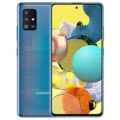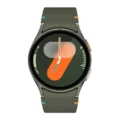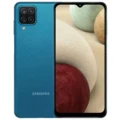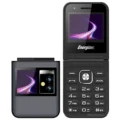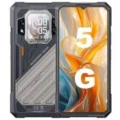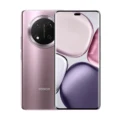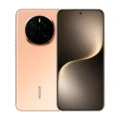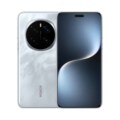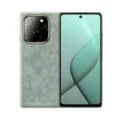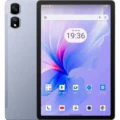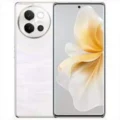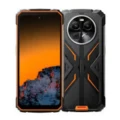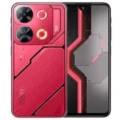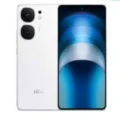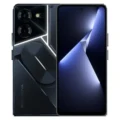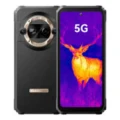Samsung Galaxy Quantum 2
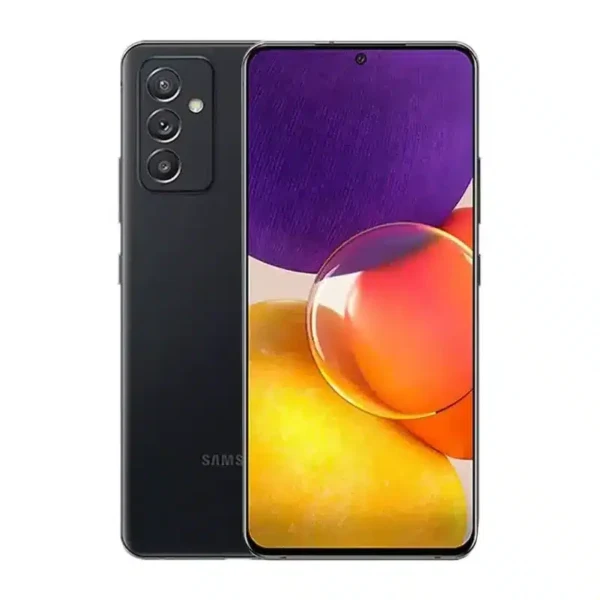

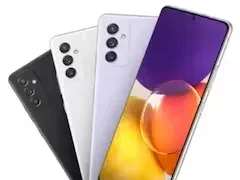
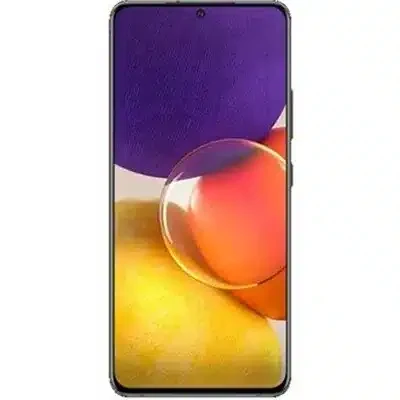
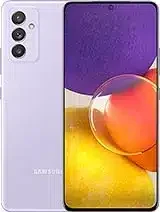
- : 6GB RAM Snapdragon 855+, QRNG security chipset
- : 6.7" 1440x3200 pixels
- : 4500mAh 25W
- : 64MP 2160p
The Samsung Galaxy Quantum 2 marks a quantum leap in smartphone technology, showcasing Samsung’s commitment to innovation and cutting-edge features. Initially capturing attention with its sleek design and captivating display, this device promises an elevated mobile experience.
Stunning Display and Design
The Galaxy Quantum 2 features a mesmerizing 6.7-inch Super AMOLED display, offering vibrant colors and crisp visuals. The Infinity-O design ensures an immersive viewing experience, allowing you to enjoy your favorite content in stunning detail. The sleek and slim profile adds a touch of sophistication, making it a style statement in your hands.
Quantum Security Features
What sets the Samsung Galaxy Quantum 2 apart is its quantum security features. Samsung has integrated quantum encryption technology into the device, providing an additional layer of security for your sensitive data. This innovative approach ensures that your information is safeguarded against potential threats, offering peace of mind for users concerned about privacy.
Powerhouse Performance
Under the hood, the Samsung Galaxy Quantum 2 is powered by a robust processor, delivering exceptional performance for demanding tasks. Whether you’re gaming, multitasking, or running resource-intensive applications, the device handles it all seamlessly. The One UI 3.1 adds a layer of intuitive and user-friendly interface to enhance the overall user experience.
Quantum Camera Capabilities
The Galaxy Quantum 2 boasts a versatile triple-camera setup, including a high-resolution main camera, ultra-wide lens, and depth sensor. Capture stunning photos and videos in various scenarios, from breathtaking landscapes to detailed close-ups. The camera capabilities add another dimension to the device’s appeal, making it a reliable companion for photography enthusiasts.
In conclusion, the Samsung Galaxy Quantum 2 offers a holistic package of style, security, and performance. With its stunning display, quantum security features, powerful performance, and impressive camera capabilities, the Galaxy Quantum 2 is a quantum leap in the world of smartphones.
So, do you want to know more about this phone? Kindly visit the official SAMSUNG website.
Not Satisfied?
Still confused while choosing your Smartphone from Samsung? Go to the store, and choose another one of your choice.
Specs
Network
| 2G Network GSM 850 / 900 / 1800 / 1900 - SIM 1 & SIM 2 (dual-SIM) CDMA 800 / 1900 |
GSM 850 / 900 / 1800 / 1900 |
| 3G Network |
HSDPA 850 / 900 / 1700(AWS) / 1900 / 2100 |
| 4G Network |
1, 2, 3, 4, 5, 7, 8, 12, 17, 20, 26, 28, 38, 40, 41, 66 |
| 5G Network |
78 Sub6 |
| Speed | HSPA, LTE-A, 5G |
LAUNCH
| Announced | April, 2026 |
| Status |
Available. Released 2021, April 23 |
BODY
| Dimensions | 161.9 x 73.8 x 8.1 mm (6.37 x 2.91 x 0.32 in) |
| Weight | 176 g (6.21 oz) |
| SIMs SIM (Subscriber Identity Module) is a small card that contains mobile network subscriber's account information. This allows the phone using the card to attach to a mobile network. The SIM card is most commonly associated with GSM and UMTS mobile networks. Moving a SIM card from one phone to another allows a subscriber to switch mobile phones without having to contact their mobile network carrier. SIM cards can also be used by a phone to store limited amounts of data, such as phone numbers and text messages. |
Nano-SIM |
Display
| Display Type Display Technology => A number of display technologies and types used in mobile phones => TFT (Thin Film Transistor), IPS (In-Place Switching), OLED (Organic Light Emitting Diode), AMOLED (Active-Matrix Organic Light-Emitting Diode), Super AMOLED (an even advanced version of AMOLED), Resistive Touchscreen (Resistive touchscreens contain two layer of conductive material with a very small gap between them which acts as a resistance), Capacitive Touchsceen (Capacitive touchscreen technology consists of a layer of glass coated with a transparent conductor) | Dynamic AMOLED 2X, 120Hz, 1200 nits (peak) |
| Size | 6.7 inches, 108.4 cm2 (~90.7% screen-to-body ratio) |
| Resolution | 1440 x 3200 pixels, 20:9 ratio (~524 ppi density) 120Hz@FHD / 60Hz@QHD refresh rate |
PLATFORM
| Operating System OS => Every computer system run on a base software called Operating System (OS). Operating System controls all basic operations of the computer (such as smartphone, PDAs, tablet computers and other handheld devices). The Operating System allows the user to install and run third party applications (apps), apps are used to add new functionality to the device. | Android 11, One UI 3.1 |
| Chipset Chipset is a group of integrated circuits designed to perform one or a more dedicated functions, often with real time computing constraints, Popular smartphones are equipped with more advanced embedded chipsets that can do many different tasks depending on their programming. | Qualcomm SM8150 Snapdragon 855+ (7 nm), QRNG security chipset |
| CPU CPU (Central Processing Unit) mostly known as processors, CPU processes instructions in order to carry out certain functions that make your device operate properly. Processors are often described as the brain of computers, smartphones and tablets, Smartphones and tablets rely on processors to carry out their every task, Processors are an incredibly important factor in selecting any type of computing device, including your smartphone. | Octa-core (1x2.96 GHz Kryo 485 & 3x2.42 GHz Kryo 485 & 4x1.78 GHz Kryo 485) |
| GPU GPU (Graphics Processing Unit) is a single-chip processor designed to rapidly manipulate and alter memory to accelerate the creation of images in a frame buffer intended for output to a display, This includes things such as lighting effects, object transformations, and 3D motion. | Adreno 640 (700 MHz) |
MEMORY
| Card Slot Memory Card Slot is a special slot for inserting a memory card. Memory cards allow you to expand the phone's built-in memory, A memory card (sometimes called a flash memory card or a storage card) is a small storage medium used to store data such as text, pictures, audio, and video, for use on small, portable or remote computing devices such as mobile phones, mp3 players, digital cameras. | microSDXC (dedicated slot) |
| Internal | 128GB 6GB RAM |
MAIN CAMERA
| Cameras Specs Today’s smartphones come equipped with a very comprehensive set of camera related specifications. Our smartphone, for many of us, has become our primary camera due to it being the one we always have with us. |
64 MP, f/1.8, 26mm (wide), 1/1.7X", 0.8µm, PDAF, OIS 12 MP, f/2.2, 123˚ (ultrawide), 1.12µm 5 MP, f/2.4, (macro) |
| Video | 4K@30fps, 1080p@30/60/240fps; gyro-EIS |
| Camera Features | LED flash, panorama, HDR |
SELFIE CAMERA
| Cameras Specs Today’s smartphones come equipped with a very comprehensive set of camera related specifications. Our smartphone, for many of us, has become our primary camera due to it being the one we always have with us. | 10 MP, f/2.2, (wide) |
| Features |
HDR |
| Video | 1080p@30fps |
SOUND
| Loudspeaker | Yes, with stereo speakers |
| 3.5mm jack | No |
COMMS
| WLAN |
Wi-Fi 802.11 a/b/g/n/ac, dual-band, Wi-Fi Direct |
| Positioning |
GPS, GLONASS, GALILEO, BDS |
| Bluetooth Bluetooth is a wireless communications technology for exchanging data between mobile phones, headsets, computers and other network devices over short distances without wires, Bluetooth technology was primarily designed to support simple wireless networking of personal consumer devices. | 5.0, A2DP, LE |
| Infrared Infrared connectivity is an old wireless technology used to connect two electronic devices. It uses a beam of infrared light to transmit information and so requires direct line of sight and operates only at close range. | |
| USB | USB Type-C 2.0, OTG |
| NFC NFC (Near field communication) is a set of standards for smartphones and similar devices to establish peer-to-peer radio communications with each other by touching them together or bringing them into proximity, usually no more than a few inches. | |
| Radio |
Features
| Sensors Sensors are electronic components that detects and responds to some type of input from the physical environment. The specific input could be light, heat, motion, moisture, pressure and location, The output is generally a signal that is converted to use in computing systems, a location sensor, such as a GPS receiver is able to detect current location of your electronic device. |
Fingerprint (under display, ultrasonic), accelerometer, gyro, proximity, compass |
BATTERY
| Battery Type Battery Type => Cell phones run on various kinds of batteries depending on the manufacturer, phone size or shape and features. There are basically four types of cell phone batteries => Lithium Polymer, Lithium Ion, Nickel Metal Hydride and Nickel Cadmium. | Li-Poly (Lithium Polymer) |
| Capacity Battery Capacity is a measure (typically in Amp-hr) of the charge stored by the battery, and is determined by the mass of active material contained in the battery. The battery capacity represents the maximum amount of energy that can be extracted from the battery under certain conditions. | 4500 mAh |
| Placement | non-removable |
| Charging The functionality responsible for recharging batteries in portable devices, such as mobile phones, significantly influences both battery lifespan and the practicality of daily product usage.The charging process, encompassing factors like voltage, current, and completion actions, is contingent upon the battery's size and type.Contemporary battery chargers dynamically adjust charging parameters based on the battery's current charging state. Charging an empty battery poses no safety risk, allowing for a quicker charging process. Consequently, many charging speed benchmarks, including ours, specify the battery level achieved after a 30-minute session on an empty battery.Standard chargers with a power output of 5V/1A, equivalent to 5W, serve as a baseline, with anything surpassing this speed classified as quick or fast charging. | 25W wired |
MISC
| Colors |
Black, White, Violet |
| Model | SM-A826S |
| Price | About 520 EUR |
TESTS
Reviews
Disclaimer Note
We strive to maintain accurate and up-to-date content on our website for general information purposes only. Please refrain from using the material for business, legal, or any other decisions.


